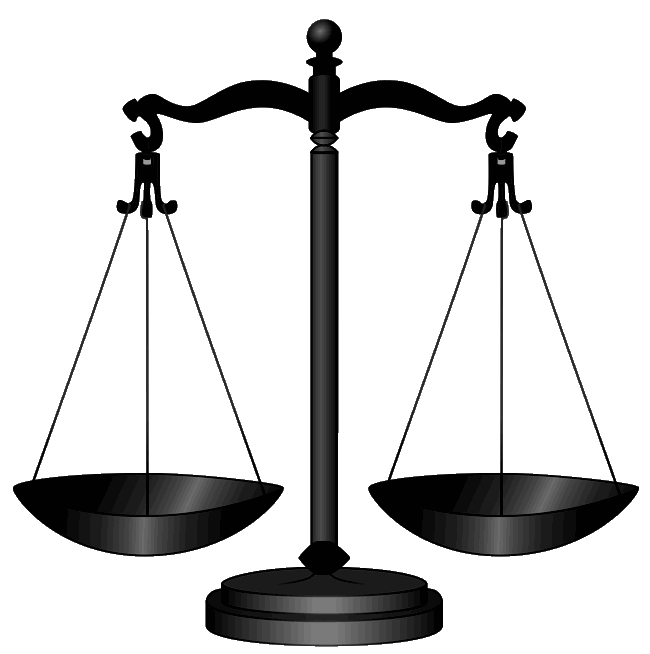|
PK-97 (LOWER DIR-IV)
PK-17 Lower Dir-IV () is a constituency for the Khyber Pakhtunkhwa Assembly of the Khyber Pakhtunkhwa province of Pakistan. Elections 2018 Elections 2013 The following table shows the names of candidates, their parties and the votes they secured in the general elections held on May 11, 2013. Elections 2008 Hidayat Ullah Khan the candidate of Awami National Party won the elections. Elections 2002 Siraj Ul Haq the candidate of MMA Mixed martial arts (MMA), sometimes referred to as cage fighting, no holds barred (NHB), and ultimate fighting, and originally referred to as Vale Tudo is a full-contact combat sport based on striking, grappling and ground fighting, incorp ... won the elections. See also * PK-16 Lower Dir-III * PK-18 Lower Dir-V References {{Constituencies of Khyber Pakhtunkhwa Assembly , state=collapsed Khyber Pakhtunkhwa Assembly constituencies ... [...More Info...] [...Related Items...] OR: [Wikipedia] [Google] [Baidu] |
Khyber Pakhtunkhwa Assembly
The Provincial Assembly of Khyber Pakhtunkhwa is a unicameral legislature of elected representatives of the Pakistani province of Khyber Pakhtunkhwa, which is located in Peshawar, the provincial capital. It was established under Article 106 of the Constitution of Pakistan previously having a total of 124 seats, with 99 general seats, 22 seats reserved for women and 3 seats for non-Muslims.The Provincial Assembly and Government of Khyber-Pakhtunkhwa: An Overview After the merger of with the Province of |
Pakistan Tehreek-e-Insaf
The Pakistan Tehreek-e-Insaf (PTI; ur, , ) is a political party in Pakistan. It was founded in 1996 by Pakistani cricketer-turned-politician Imran Khan, who served as the country's prime minister from 2018 to 2022. The PTI is one of the three major Pakistani political parties alongside the Pakistan Muslim League–Nawaz (PML–N) and the Pakistan People's Party (PPP), and it is the largest party in terms of representation in the National Assembly of Pakistan since the 2018 general election. With over 10 million members in Pakistan and abroad, it claims to be the country's largest political party by primary membership as well as one of the largest political parties in the world. Despite Khan's popular persona in Pakistan, the PTI had limited initial success: it failed to win, as a collective, a single seat in the 1997 general election and the 2002 general election; only Khan himself was able to win a seat. Throughout the 2000s, the PTI remained in opposition to the presi ... [...More Info...] [...Related Items...] OR: [Wikipedia] [Google] [Baidu] |
PK-16 Lower Dir-III
PK-16 Lower Dir-III () is a constituency for the Khyber Pakhtunkhwa Assembly of the Khyber Pakhtunkhwa province of Pakistan. Elections 2013 The following table shows the names of candidates, their parties and the votes they secured in the general elections held on May 11, 2013. See also * PK-15 Lower Dir-II PK-15 Lower Dir-II () is a constituency for the Khyber Pakhtunkhwa Assembly of the Khyber Pakhtunkhwa province of Pakistan. Summary 1 » Percentage of Votes Polled to Registered Voters Elections 2013 General election were held on May 11, 2013 ... * PK-17 Lower Dir-IV References External links Khyber PakhtunkhwaAssembly's official website Election Commission of Pakistans official website Awaztoday.comSearch Result Election Commission PakistanSearch Result Khyber Pakhtunkhwa Assembly constituencies {{Pakistan-constituency-stub ... [...More Info...] [...Related Items...] OR: [Wikipedia] [Google] [Baidu] |
Muttahida Majlis-e-Amal
The Muttahida Majlis–e–Amal (MMA; Urdu: , "United Council of Action") is a political alliance consisting of conservative, Islamist, religious, and far-right parties of Pakistan. Naeem Siddiqui (the founder of Tehreek e Islami) proposed such an alliance of all the religious parties back in the 1990s. Qazi Hussain Ahmad endeavored for it and due to his efforts, it was formed in 2002 in a direct opposition to the policies led by President Pervez Musharraf to support for the War in Afghanistan. The alliance more densely consolidated its position during the nationwide general elections held in 2002. The JUI(F) led by its leader, the cleric Fazl-ur-Rahman, retained the most of the political momentum in the alliance, still some portion of the leadership comes from the JI. The MMA retained the provisional government of Khyber–Pakhtunkhwa and remained in alliance with PMLQ in Balochistan. Much public criticism and disapproval nonetheless grew against the alliance. Despite i ... [...More Info...] [...Related Items...] OR: [Wikipedia] [Google] [Baidu] |
Mutahida Deeni Mahaz
The Muttahida Majlis–e–Amal (MMA; Urdu: , "United Council of Action") is a political alliance consisting of conservative, Islamist, religious, and far-right parties of Pakistan. Naeem Siddiqui (the founder of Tehreek e Islami) proposed such an alliance of all the religious parties back in the 1990s. Qazi Hussain Ahmad endeavored for it and due to his efforts, it was formed in 2002 in a direct opposition to the policies led by President Pervez Musharraf to support for the War in Afghanistan. The alliance more densely consolidated its position during the nationwide general elections held in 2002. The JUI(F) led by its leader, the cleric Fazl-ur-Rahman, retained the most of the political momentum in the alliance, still some portion of the leadership comes from the JI. The MMA retained the provisional government of Khyber–Pakhtunkhwa and remained in alliance with PMLQ in Balochistan. Much public criticism and disapproval nonetheless grew against the alliance. Despite its ... [...More Info...] [...Related Items...] OR: [Wikipedia] [Google] [Baidu] |
Muhammad Zia-ul-Haq
General Muhammad Zia-ul-Haq HI, GCSJ, ร.ม.ภ, (Urdu: ; 12 August 1924 – 17 August 1988) was a Pakistani four-star general and politician who became the sixth President of Pakistan following a coup and declaration of martial law in 1977. Zia served in office until his death in a plane crash in 1988. He remains the country's longest-serving ''de facto'' head of state and Chief of Army Staff. Educated at St. Stephen's College, Delhi , Zia was commissioned in the British Indian Army in the Guides Cavalry on 12 May 1943 after graduating from the Officer Training School (OTS) Mhow as British Army Officer and fought against Japanese forces in World War II in Burma and Malaya, before opting for Pakistan in 1947. He fought as a tank commander in the Indo-Pakistani War of 1965. In 1970, he led a military training mission to Jordan, proving instrumental to defeating the Black September insurgency against King Hussein. In recognition, Prime Minister Zulfikar Ali Bh ... [...More Info...] [...Related Items...] OR: [Wikipedia] [Google] [Baidu] |
Pakistan Muslim League (N)
The Pakistan Muslim League (Nawaz) ( ur, , translit=Pākistān Muslim Līg (Nūn) PML(N) or PML-N) is a Centre-right politics, centre-right and Liberal conservatism, liberal conservative political party in Pakistan. Alongside the Pakistan Tehreek-e-Insaf (PTI) and Pakistan Peoples Party (PPP), it is one of the three major political parties of the country. The party was founded by former Prime Minister of Pakistan, Prime Minister Nawaz Sharif after the dissolution of Islami Jamhoori Ittehad, Islamic Democratic Alliance in 1993. The Party platform, party's platform is generally Conservatism in Pakistan, conservative, which involves supporting free market capitalism, free markets, deregulation, Tax cut, lower taxes and privatisation, private ownership. Although the party historically supported social conservatism, in recent years, the party’s political ideology and platform has become more Liberal conservatism, liberal on social and cultural issues. One of Muslim League schisms ... [...More Info...] [...Related Items...] OR: [Wikipedia] [Google] [Baidu] |
Jamiat Ulema-e Islam (F)
Jamiat Ulema-e-Islam Pakistan (Fazl) also Jamiat Ulema-e-Islam (F) or simply as Jamiat Ulema-e-Islam (Urdu: ; ; JUI-F) is a Deobandi Sunni political party in Pakistan. Established as the ''Jamiat Ulema-e-Islam'' in 1945, it is the result of a factional split in 1988, ''F'' standing for the name of its leader, Fazal-ur-Rehman. It is almost entirely based in southern Khyber Pakhtunkhwa and northern Balochistan, which are mostly inhabited by Pashtuns. The JUI-S faction, led by Samiul Haq, is of regional significance in Khyber Pakhtunkhwa but has no representation on the national level. The split of JUI into two factions was due to dissent over the policy of Pakistani president Zia-ul-Haq of supporting Mujahideen outfits in the Afghanistan war during the 1980s. One of its faction, Jamiat Ulama-e-Islam Nazryati (JUI-N), split in 2007 and merged back into JUI-F in 2016. On 29 December 2020, Jamiat Ulema-e-Islam Pakistan (JUI-P) split as a separate political party under the leader ... [...More Info...] [...Related Items...] OR: [Wikipedia] [Google] [Baidu] |
Pakistan Peoples Party Parliamentarians
The Pakistan Peoples Party Parliamentarians (PPPP) is a Pakistani political party and an electoral extension of the Pakistan Peoples Party(PPP). It was created in 2002 by Amin Fahim after Pervez Musharraf's military dictatorship imposed restrictions on the PPP and its chairperson Benazir Bhutto to participate in Pakistani politics. In January 2017, Asif Ali Zardari was elected as the President of PPPP. See also *Pakistan Peoples Party The Pakistan People's Party ( ur, , ; PPP) is a centre-left, social-democratic political party in Pakistan. It is currently the third largest party in the National Assembly and second largest in the Senate of Pakistan. The party was founded ... References Pakistan People's Party Political parties in Pakistan Secularism in Pakistan Social democratic parties in Pakistan {{Pakistan-party-stub ... [...More Info...] [...Related Items...] OR: [Wikipedia] [Google] [Baidu] |
Jamaat-e-Islami Pakistan
Jamaat-e-Islami (JI; Urdu: , "Islamic Congress"), or Jamaat as it is simply known, is an Islamist political party which is based in Pakistan and it is the Pakistani successor to Jamaat-e-Islami, which was founded in colonial India in 1941. Its objective is the transformation of Pakistan into an Islamic state, governed by Sharia law, through a gradual legal, and political process. JI strongly opposes capitalism, communism, liberalism, and secularism as well as economic practices such as offering bank interest. JI is a vanguard party: its members form an ''elite'' with "affiliates" and then "sympathizers" beneath them. The party leader is called an '' ameer''. Although it does not have a large popular following, the party is quite influential and considered one of the major Islamic movements in Pakistan, along with Deobandi and Barelvi (represented by Jamiat Ulema-e Islam and Jamiat Ulema-e-Pakistan respectively). Jamaat-e-Islami was founded in Lahore, British India in 1941 ... [...More Info...] [...Related Items...] OR: [Wikipedia] [Google] [Baidu] |
Awami National Party
The Awami National Party (ANP; ur, , ps, اولسي ملي ګوند; lit. ''People's National Party'') is a Pashtun nationalist, secular and leftist political party in Pakistan. The party was founded by Abdul Wali Khan in 1986 and its current president is Asfandyar Wali Khan, grandson of Bacha Khan, with Mian Iftikhar Hussain serving as the Secretary-General. Part of the PPP-led cabinet of the Pakistani government during 2008−13, ANP's political position is considered left-wing, advocating for secularism, public sector government, and social egalitarianism. ANP was the largest Pashtun nationalist party in Pakistan between 2008−2013 with influence lying in the Pashtun dominated areas in and around Khyber-Pakhtunkhwa. They governed the province from 2008–2013 but lost to Pakistan Tehreek-e-Insaf in the assembly election of 2013. History Abdul Wali Khan's political career had been built on the tradition of intense Pashtun nationalism inherited from his father, Abdul ... [...More Info...] [...Related Items...] OR: [Wikipedia] [Google] [Baidu] |
Siraj-ul-Haq
Siraj ul Haq ( ur, سراج الحق; born 5 September 1962) is a Pakistani politician who was elected as the chief of Jamaat-e-Islami, a religious political party in Pakistan which seeks to establish an Islamic legal system. He also served as the senior minister of Khyber Pakhtunkhwa, in the Pervez Khattak administration. Early years Siraj ul Haq was born in Meerzo village of Shabqadar Tehsil in Charsadda District. However, he paternally belongs to Samarbagh in Lower Dir District. His father was a graduate of Darul Uloom Deoband and the superintendent (مہتمم) of a Madrassa. He received his early education in local regional schools and studied political science in the University of Peshawar and MA (Education) from University of Punjab in (1990). At university, he studied the books of Maulana Syed Abul Aala Maududi and Maulana Naeem Siddiqui. He joined Islami Jamiat-e-Talaba and was the chief of Islami Jamiat-e-Talaba from 1988 to 1991. He has been elected twice ... [...More Info...] [...Related Items...] OR: [Wikipedia] [Google] [Baidu] |






